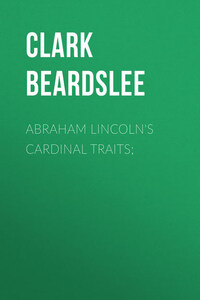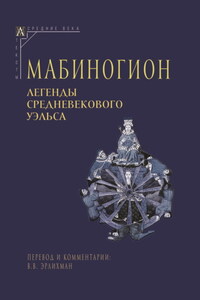Abraham Lincoln was a man among men. He was earnest and keen. He was honest and kind. He was humble and inwardly refined. He was a freeman in very deed. His conscience was king.
These few words contain the total sum of the following book. In unfolding what they severally mean, and what their living unison implies, the aim has been to bring to view the clear and simple beauty of a noble personality; to show how such a human life contains the final test of any proper claim in all the bounds of Ethical research; and to stir in thoughtful minds the query whether such a character as Lincoln's life displays, instinct as it is with Godliness, may not yield forms of statement ample and exact enough for all the essential formulas of pure Religion.
Assuredly his aspirations were ideal. Quite as certainly his ways with men were practical. The call and need today of just his qualities are past debate.
If only in our national senate chamber the ever-shifting group of senators could hear the voice of Lincoln at every roll-call and in each debate! If only in all our universities our studious youth could glean each day from Lincoln, as he speaks of politics and of logic, of ethics and of history! If only in every editorial room, where current events are registered and reviewed, Lincoln's wit and wisdom might illumine and advise! If only at every council, conference, or convention, where leaders of our churches debate religious themes, the reverence of Lincoln might preside! If only in the council chambers where directors meet to plan and govern our modern enterprises in industry and finance, Lincoln's broad humaneness might be felt! If only every artist at his exalted and elusive task could every day obtain new views of Lincoln's full nobility! If only toilers in the shop and field could feel each day the friendly brotherhood in Lincoln's rough, hard hand!
Then toil, while losing naught of eagerness, would become content. Art, while losing naught of beauty, would become unfailingly ennobling. Commerce, while losing naught of enterprise, would grow benign. Religion, while retaining a becoming dignity, would not fail to be sincere. The public press would grow more savory and sane. Our schools would be nurseries of manliness. And our conscience would be embodied in our law.
But Lincoln's face is vanished. Lincoln's voice is hushed. What remains is that Lincoln's sentiments be republished every day in lives that reverence and reproduce his excellence. To indicate this path, to embolden and embody this aspiration is the service this volume undertakes.
Throughout this study, thought is fastened centrally upon Lincoln's last inaugural address. There Lincoln stands complete. And that completeness is vividly conscious in Lincoln's own understanding. Eleven days after its delivery, and one month before his death, he wrote to Thurlow Weed, saying that he expected that speech "to wear as well as – perhaps better than – anything I have produced." Of almost incredible brevity, containing as it left his hands, but five short paragraphs, the compass and burden of thought within that address are every way notable. It is in fact Lincoln's digest of the course and trend of our national life; while on the side of character it is replete with telling intimations of Lincoln's own moral effort, purpose, and point of view. Here are in visible action all the elements of essential manhood, all the virtues of a balanced character. Here are insight, judgment, resolution. Here is momentum. Here is something that endures. Here are ends worth any cost. Here is wariest use of means. And here are wrongs, engendering anguish, and mortal strife. And here are ultimate alternatives. And all is grasped and even merged in Lincoln as he speaks. Here is wealth of ready matter and direct allusion quite enough for any volume to lay open and assess.
Such a moral inventory and evaluation this study undertakes. Its method is to subject this short address to the strictest ethical analysis, to identify the elements that are integral and cardinal in the moral being of God, and man, and government. Then, to articulate and unify these elements into a vital ethical synthesis, to demonstrate and manifest the living unison of character. Then, to designate and undertake to clarify the major problems which such an analysis and such a synthesis of such a speech and such a man open to a student's mind.
In this procedure it is the aim to show how from first to last in Lincoln's life his mental clarity and his moral honesty are held in model parity; how in his daily walk law and liberty go hand in hand; how his cardinal moral qualities are to be defined; and how these elemental virtues may avail in their own authority and right to guide the eyes of men towards beauty, to guard the souls of men against despair, to find the stable base of government, to overcome all guilt by grace, to prove the perfect manliness of patience, to ground the thought of men upon reality, to pierce the gloom of woe, to find the core of piety, to perfect persuasive speech, and to win a vision of the soul. Hereby and thus it may at last stand plain that in the soul of Lincoln there is a moral universe; and that within the verities and mysteries of this universe he alone is truly wise and fully free who knows and proves the worth of faith.








